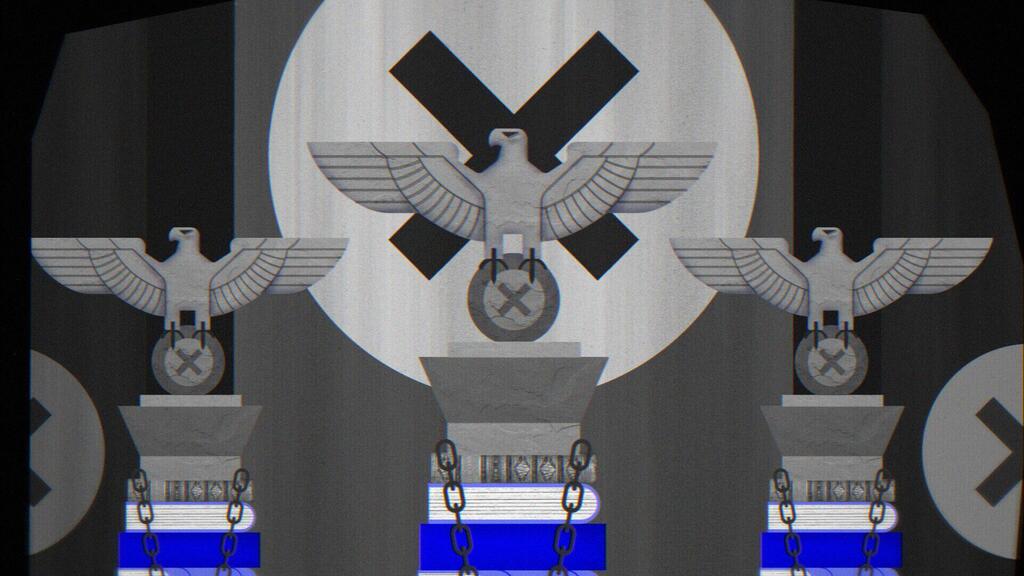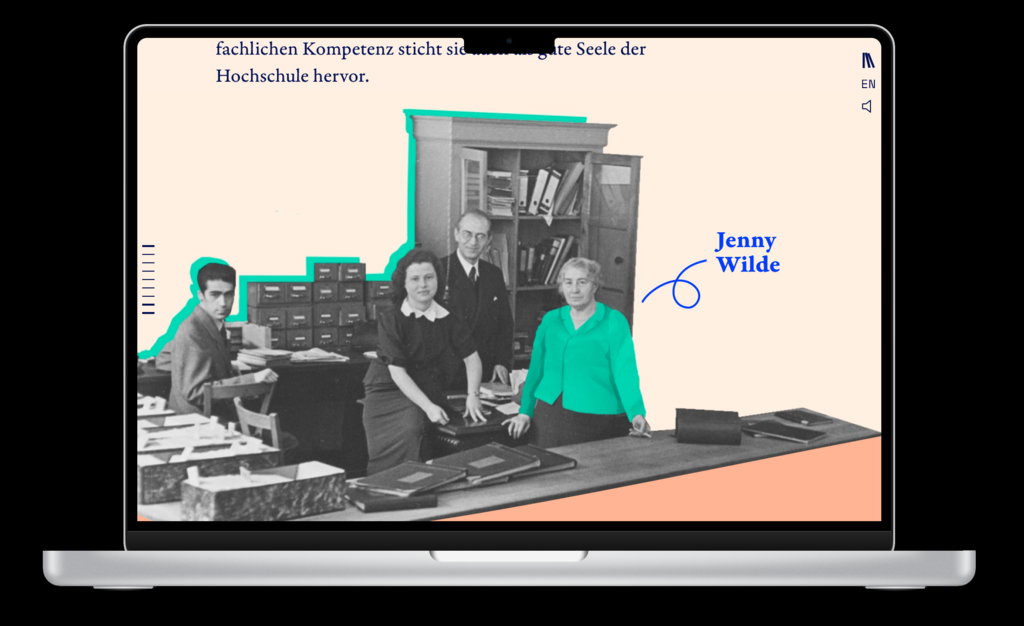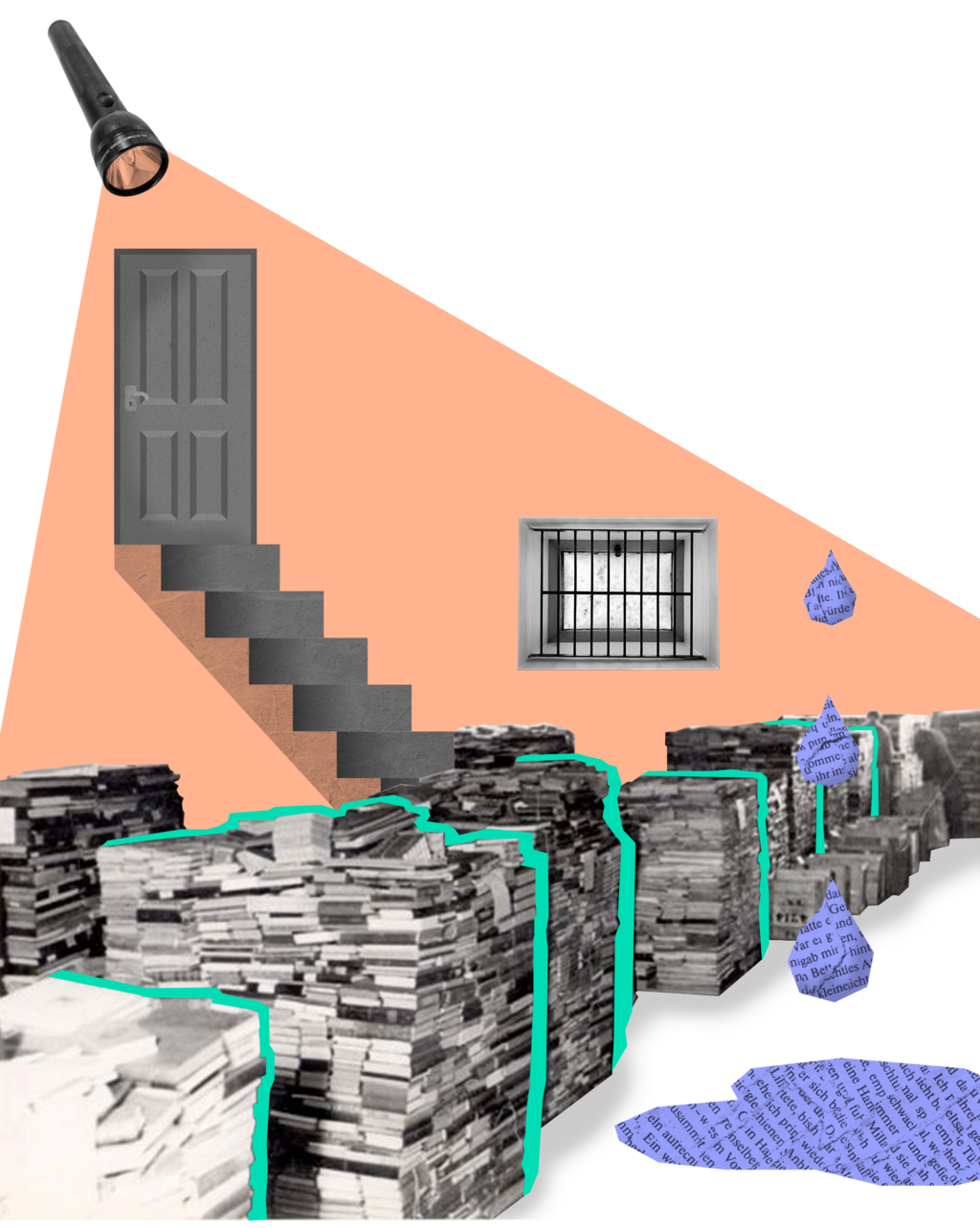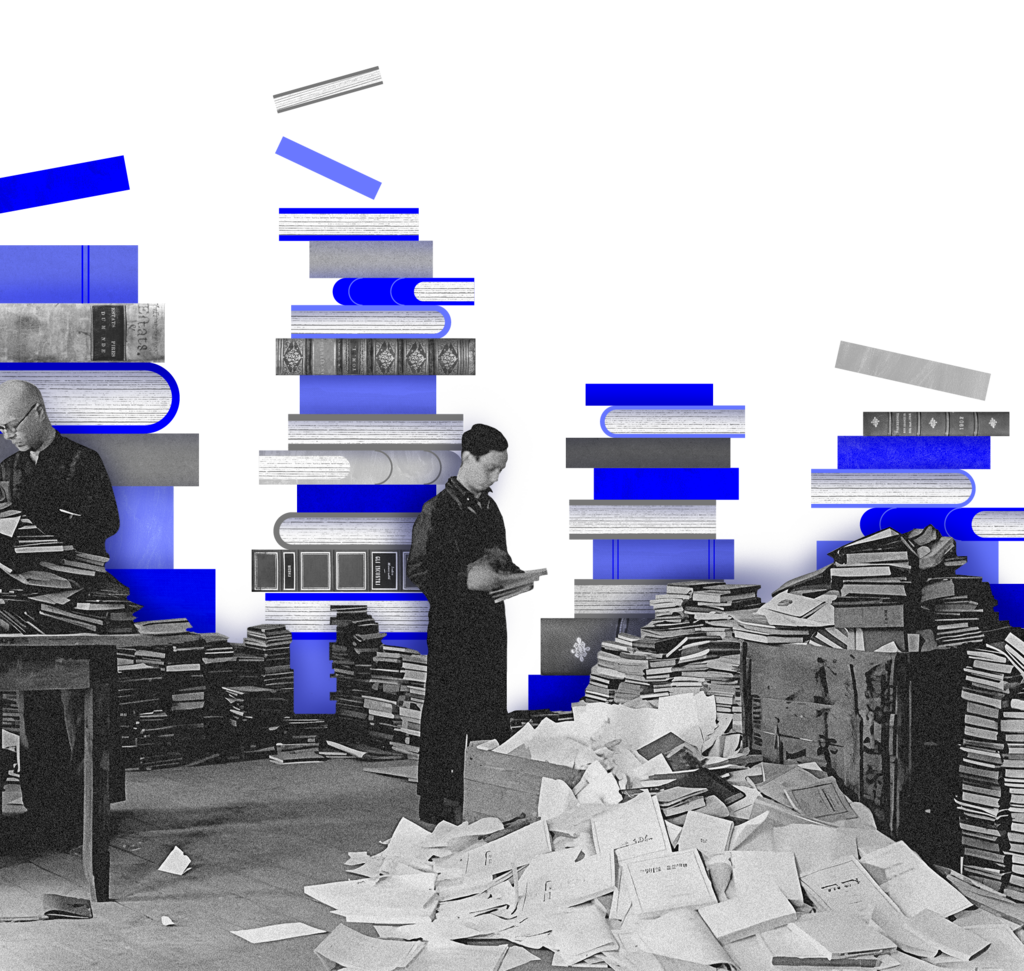Getting your Trinity Audio player ready...
For the first time, an international project invites the public to help locate a library that was stolen by the Nazis. The lost books belonged to the Higher Institute for Jewish Studies in Berlin (Hochschule für die Wissenschaft des Judentums) – one of the world’s most important Jewish libraries before WWII.
Read more:
Tens of thousands of volumes on Jewish history and culture were looted during the Holocaust and then dispersed around the world. The results of the global book search initiated by the Leo Baeck Institute will shed light on an important chapter in the history of German Jewry, contributing in an unprecedented manner to research, culture and memory. This is the largest citizen science initiative of its kind, and the first ever to reach out to the public on several continents.
The project was conceived and curated by the Leo Baeck Institute Jerusalem and its sister branch in London. It was developed by the award-winning design agency Goldener Westen Berlin. The collaboration with the Leo Baeck Institute Friends Association is generously funded by the German Foundation for Remembrance, Responsibility and Future (EVZ) and supported by the German Finance Ministry (BMF).
The Higher Institute for Jewish Studies (Berlin), founded in 1872, was one of the leading liberal rabbinical seminaries in Germany. Over the years, it became a thriving spiritual center, home to such leading scholars as orientalists Moritz Abraham Levy and Julius Fürst, as well as Abraham Geiger, one of the founding fathers of Reform Judaism. Rabbi Dr. Leo Baeck studied at the Higher Institute as a young man and taught there for many years, until it was forcibly closed.
The library was the beating heart of the Higher Institute, with a magnificent collection of over 60,000 titles on Jewish history and culture. In 1942, the Nazis shut it down. They confiscated its books as part of their attempt to seize control of primary sources and to rewrite Jewish history. Some of these books were destroyed in the war; others survived and found their way into various libraries worldwide.
Hitherto, some 5,000 of the library’s books and manuscripts have been located, mostly in Prague, as well as in London, Berlin, Heidelberg, Frankfurt, Los Angeles and Jerusalem. Over the years, historians, archivists, librarians and provenance researchers have worked on locating the books. However, despite their efforts, the impact of their work was limited.
Now, for the first time, the Library of Lost Books project reaches out to the public through a dedicated website that tells the story of the Higher Institute for Jewish Studies, its staff, students and, last but not least, its books.
This web feature, titled Library of Lost Books, also calls the public to join the search effort for the lost books. Every piece of information gathered will be validated by the Leo Baeck Institute Jerusalem and uploaded onto a continuously updated online map, to promote and visualize the search effort.
The Library of Lost Books website includes a database and map of the dispersed books as well as an interactive online exhibition presenting background information about the history of the Higher Institute for Jewish Studies in Berlin. It also tells the story of the Nazis’ plunder of books and describes the attempts to salvage the remaining books following the war.
The online exhibition runs in four languages (Hebrew, English, German and Czech). It will be accompanied by a traveling physical installation throughout 2023 and 2024 with stations in various cities where library books have hitherto been found, namely in Israel, Europe and the U.S. The Library of Lost Books exhibition was launched at the State Library Berlin on November 28.
The lost books themselves have fascinating biographies. They tell us about complex and often perilous journeys from the Higher Institute’s library to their present location. One of the examples presented in the exhibition is the path of the book Introduction to the Hebrew Language by Leo Metmann. Published in German in Jerusalem in 1908, it was donated to the Higher Institute’s library in Berlin by the author, and subsequently looted by the Nazis. It was located after the war and transferred to the National Library in Jerusalem. In the 1970s, the National Library handed it over to the Leo Baeck Institute in Jerusalem, where it is kept safe to this day. The remarkable travels of this book have seen it come full circle: from Jerusalem to Berlin, and then returning to Jerusalem.
“The Hochschule was one of the most significant institutes of liberal German Jewry in the interwar period," says Prof. David Rechter, chair of the Leo Baeck Institute London. “The exhibition will help us highlight the diversity of German-Jewish society before the Holocaust."
According to Dr. Irene Aue-Ben-David, director of the Leo Baeck Institute Jerusalem, “The choice of engaging the public digitally is meant to pique young people’s curiosity about a thriving educational institute destroyed by the Nazis. We hope many youngsters around the world will be involved in locating the lost books in libraries, used books stores, private collections and archives."
Dr. Andrea Despot, EVZ Foundation CEO, states, "We fund a variety of forward-looking projects to keep the memory alive. The Leo Baeck Institute's digital exhibition tells the story of the books and their readers, conveying specific aspects of National Socialist injustice. This is because the fate of the library reflects contemporary German history in an exemplary way. Combining analog and digital participation in the search for lost books, the project creates a creative and contemporary space for learning and experience."





